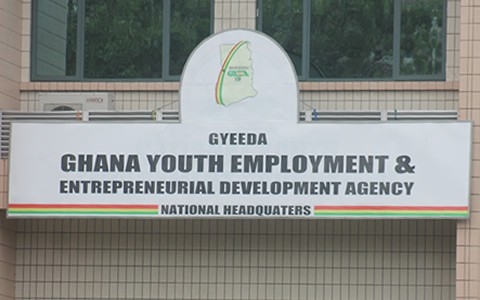 Ministry of Finance Built Capacity of 31 Journalists in PPPs
Ministry of Finance Built Capacity of 31 Journalists in PPPs
Story by Joseph Kobla Wemakor
The Public Investment Division (PID) of the Ministry of Finance has built the capacity of thirty-one (31) selected journalists and Media Practitioners on the concept of the Public Private Partnership (PPP) and its related issues.
The Four-day Training Workshop which took place at the Capital View Hotel, Koforidua in the Eastern Region from the 1-4 October 2014 was the second of its kind since the inception of the PPP program in Ghana. The first one which took place in Accra at the Alisa Hotel was a one-day capacity building workshop equally aimed at sensitizing the media on how to carry out factual and accurate reportage on PPPs
Mrs. Magdalene Apenteng, Director of the Public Investment Division, Ministry of Finance, in her opening statement indicated that the main objective of the Workshop was to create awareness, improve knowledge and understanding on PPPs, and to attract advocacy for PPPs on a national level. This was read on her behalf by Mr. Ekow Coleman, PPP analyst at the Public Investment Division of Ministry of Finance. According to Mrs. Apenteng, the understanding of PPPs can only be achieved through systematic public information and education through the media, and dialogue with key stakeholders hence the need for building the capacity of Journalists has become crucial for the survival of the PPP Program.
She maintained the importance of correct and factual reportage on the Ghana PPP Programme cannot be over-emphasised considering the fact that PPP could be misconstrued to mean a take-over of public institutions by the private sector moreover, multiple layers of unawareness among stakeholders, including public officials, public institutions, private partners, trade unions and even the media in the complex business of public-private-partnership, is a challenge which can only be met through effective education. She cautioned the participants to desist from painting attractive picture of everything PPP but rather be objective in the assessment of individual PPP arrangements and Programmes in order to arrive at an accurate reportage. “Your task is not only to paint a glorious and beautiful picture of everything PPP, As professional and independent journalists, your objective assessment of the individual PPP arrangements and of the PPP Programme as a whole could provide valuable information and insights to assist us, as the implementers, in improving the programme for the benefit of all Ghanaians” she stated. Professor Linus Abraham, a media expert and a resource person at the workshop urged the participants to cultivate the habit of civic journalism which guarantee the use of building stories around the thematic areas of PPP rather than the adopting the watchdog journalism style which only deals with episodic story telling instead of focusing on the thematic stories. According to him understanding the Public Investment Division (PID) and its work, and gaining access to its key themes and messages, provides the basis for developing story ideas and story angles that go beyond simple episodic stories whiles “thematic stories,” build the public’s understanding and knowledge of what PPPs are, their processes, and importance to the economic development of the nation. While encouraging the participants to be agents of change and helping bring to light the benefits of the PPPs Projects in Ghana, he stressed that the media has a huge role to play if the PPP programmes can work effectively to the development of the nation. The PPP arrangement is a long-term contractual arrangement where government taps the financial, human and technical resources of the private sector for the delivery of infrastructure and services traditionally provided solely by government. The arrangement ensures that there is a significant degree of risk-sharing between the public and private sectors. Principally, a PPP enables Government to provide better infrastructure and services by adopting some of the efficiencies and good practices of the private sector moreover it frees public resources that would have been used for such projects for other equally important uses. The private sector, on its part, derives benefits from the revenue generated from the projects. The Programme is aimed at removing the pressures on limited government resources in provision of public infrastructure and services, draw on private sector resources to accelerate needed investments in public infrastructure and services, increase the availability of public infrastructure and services and improve their quality and facilitate investment by the private sector, by creating an enabling environment for PPPs; The Public Investment Development is responsible for promoting awareness and understanding of PPPs, creating an enabling context for appropriate development of PPPs and supervising the Implementation of PPPs in the country.
